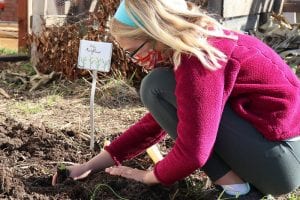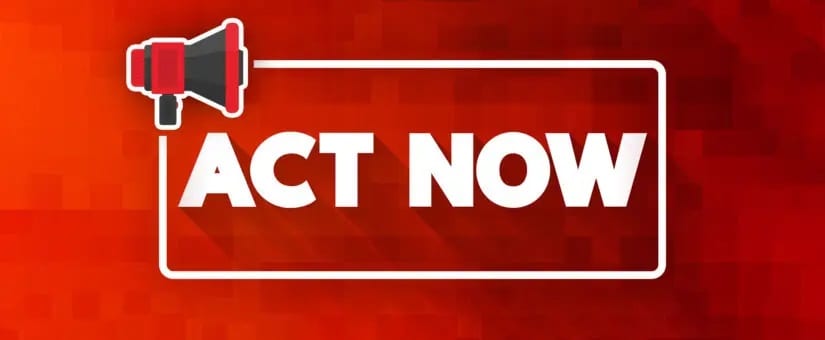
Gateway School provides a Neighborhood Nectar Corridor
by Petra Bryan
What do cherries, blueberries, pumpkin pie, and chocolate all have in common? They all need pollinators! That’s one of the reasons why Gateway School’s 5th grade students planted a California native pollinator-friendly garden in Life Lab – Gateway’s one-third acre outdoor science learning lab.
This new nectar garden is the beginning of the students’ efforts to create a Neighborhood Nectar Corridor to provide a safe rest stop for butterflies, bees, and other pollinators — insects that are responsible for approximately one-third of all food crop pollination.
When complete, the Neighborhood Nectar Corridor will consist of a series of contiguous nectar gardens filled with California native pollinator-friendly plants including Ceanothus, Yarrow, Sea-side Daisy, Coyote Mint, Coastal Sand Verbena, and Pacific Aster that connect Gateway School with the Monarch butterfly’s overwintering site at Natural Bridges State Beach.
Gateway’s mission to inspire children to lead lives of purpose and compassion through scholarship and citizenship is evident in this project. When thinking about service-learning project ideas, the 5th grade students in Life Lab built upon what they learned about California native animals in 2nd grade — that habitat loss has and continues to impact the world’s plants, animals, and ecosystems. They wanted to do something positive to have a lasting impact and involve the larger Santa Cruz community.

In addition to creating their own garden, Gateway students, in conjunction with Gateway alumnus and owner of Rewild Designs Covey Potter, are propagating California native pollinator-friendly plants and donating them to the campus’ neighbors to make their dream of establishing the Neighborhood Nectar Corridor a reality.
Gateway’s Kindergarten through Middle School students develop a strong sense of personal responsibility for the natural world and others. Taking what they learn in the classroom into the community lets students discover and experience the difference that each of us can make.
If you are interested in learning more about the Neighborhood Nectar Corridor or information about what to plant contact Life Lab Science teacher Caprice Potter (caprice.potter@gatewaysc.org). To learn more about Gateway School and its Life Lab Garden, please visit www.gatewaysc.org.




![Taking aim at alternative ed…again Posted on May 24, 2021 by Suki Posted in Culture This is what alternative education looks like. It’s not news that administrators in public education are generally not fans of alternative education. I live in possibly the most alternative-friendly county in the country… and I could tell you a few stories. But the tiny, vital community comprised of online public homeschool charters seems to attract more than the usual share of fear, mistrust, and derision from administrators and legislators. California’s AB 1316 is just the latest bomb being lobbed at a tiny segment of education that our enormous, well-funded public school army has decided to obliterate. Really? Don’t you have something better to do, like make sure that all schools have adequate janitorial staff? Charters are in the crosshairs Late 2019 saw the comically timed AB 1505/7 bills that restricted charter schools, especially ones that provided distance education, from expanding. Get the joke? The pandemic hit…and what sort of services did everyone need? The punchline! Everyone needed the expertise of these schools that had successfully been providing distance learning for years to get them through shelter-in-place. (Did the districts go to these repositories of knowledge for advice in how to implement distance learning? Why no, that would be admitting that these charters were providing a useful service. Most public schools chose to reinvent the steering wheel that homeschool educators have had a grasp on for years). Here we go again En garde!This is what alternative education looks like. Now AB 1316 wants to chip away at these programs again, providing less money per student, as if students who seek alternative educational options are second-class citizens. Separate? True, they chose to leave mainstream schools. But that doesn’t mean their education should be unequal. I can’t begin to explain why people who say they are educators want to restrict a mode of education that works for some children. Could it be that it often works for our high achiever kids who have had it with mainstream high school and take their high test scores elsewhere? Could it be that parents of kids with special needs, including families that want to retain their linguistic heritage or families who don’t want their kids bullied because of how they look or talk, are voting with their feet? Who uses these charters, anyway? This is hardly an exhaustive list, but here are examples of the many distance charter families I have known, or families served by friends of mine who teach for these organizations: Smart, focused students who need more than their local high schools will offer Black and brown kids whose parents want them to grow up with a healthy self-image Kids with mental health challenges for whom home is the place where they can heal Kids with life-threatening allergies for whom in-person school is simply not viable Kids who are top competitors in their field—athletics, chess, dance, etc. Children of certified public school teachers whose parents know what public school can be like and choose to stay home Let’s focus on the real problems weavingThis is what alternative education looks like. Yes, all schools should be “held accountable.” But what does that mean? If parents consistently rate their online charter school highly, and there is no reason to think that money is being embezzled or spent on bonbons for administrators, that should be accountability enough. There are a lot of real problems with public education. And despite the (I admit) rather angry tone of this piece (supporters of alternative ed are just, frankly, tired of this), I am a huge supporter of public education. I believe that all children should be educated, for free, for the benefit of all of our society. But again, I must repeat: Not all schools serve all children equally well. Children who need alternatives should get them—for free. Stop blaming alternatives for lagging mainstream school enrollment. The public school system owns that problem 100%. For more information: Why state leaders must reject AB 1316, a deceptive and destructive force against California’s public school children Flexibility Is Key The [supposed] failure of online education Anti-Charter School Bill (AB 1316) from CharterSchoolCapitol.org](https://santacruzparent.com/wp-content/uploads/2021/05/suki-1316.jpg)
